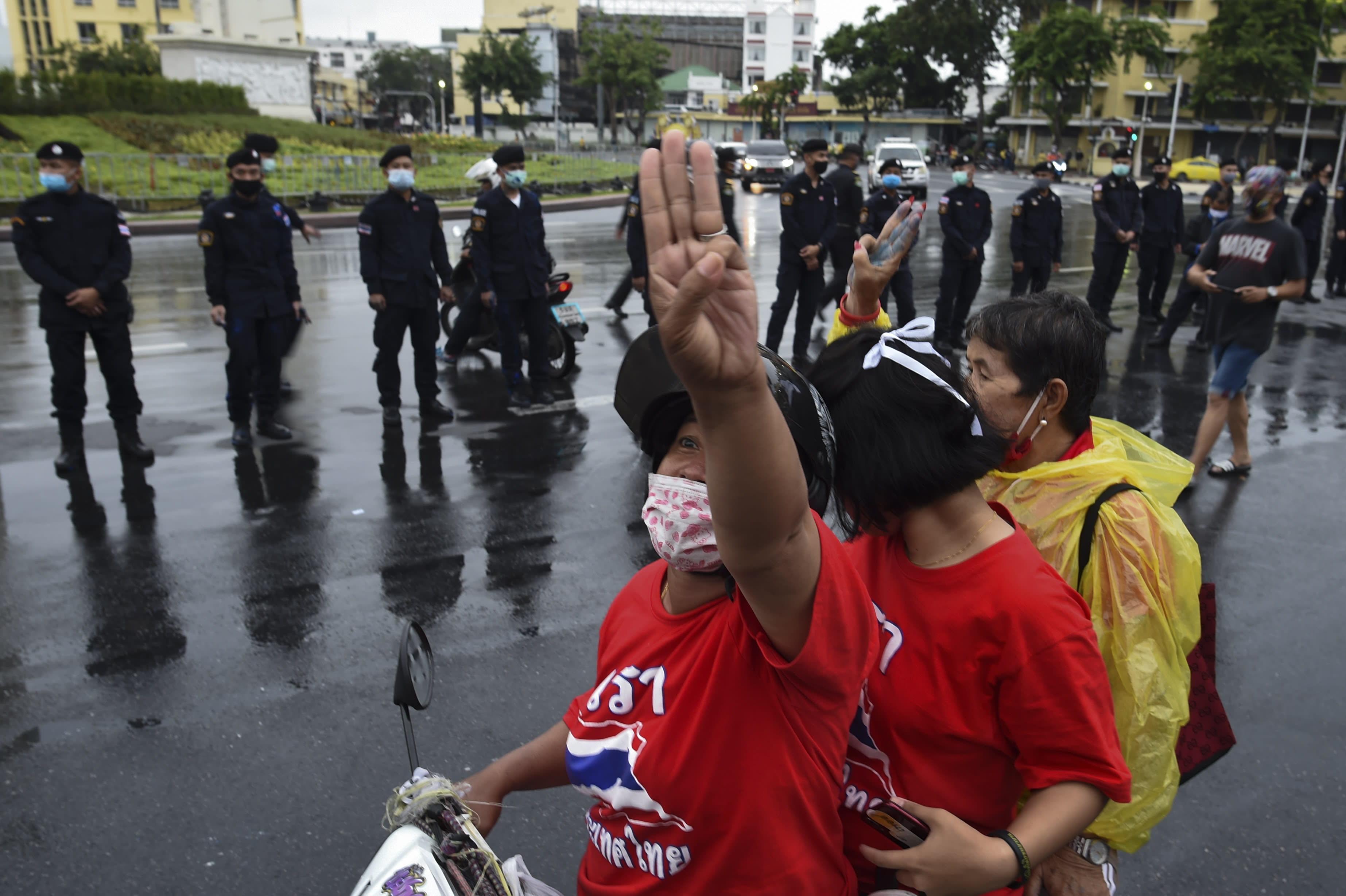
SINGAPORE — Recent protests in Thailand will be a “double whammy” for growth in the country, which has already suffered a blow from the Covid-19 pandemic, analysts say.
Furthermore, the protesters will not go away until they see a “new” Thailand, Thitinan Pongsudhirak, a professor at Chulalongkorn University, told CNBC on Friday.
On Thursday, the Thai government declared a state of emergency, as tens of thousands of protesters gathered in central Bangkok this week. They camped outside the prime minister’s office, and obstructed a royal motorcade, according to Reuters. They have a few demands — the main ones which include reform to the monarchy, a new constitution and the removal of Prime Minister Prayuth Chan-ocha.
“The rise in Thailand’s political temperature following the announcement of a state of emergency in Bangkok will deal a big blow to an economy already reeling under the impact of the pandemic,” Lavanya Venkateswaran, market economist at Mizuho Bank, wrote in a note.
Mizuho Bank lowered its 2020 GDP growth forecast for the Southeast Asian country from -6.3% to -7.5%.
“This time the social unrest brought on by decades of deep political division has been exacerbated by the COVID-19 pandemic,” Venkateswaran said, pointing out that the areas impacted by the political uncertainty are also the same ones hit by the pandemic. That includes weaker private sector spending on investment and consumption and a fallout from lower tourist arrivals. The Thai economy relies heavily on tourism for growth.
It is a serious situation, no question about it, mainly because tourism is so important for Thailand and if you have unrest, tourism does not come in and you got a real problem.
Mark Mobius
founding partner of Mobius Capital Partners
On the protests, veteran investor Mark Mobius told CNBC on Friday: “It is a serious situation, no question about it, mainly because tourism is so important for Thailand and if you have unrest, tourism does not come in and you got a real problem.”
The state of emergency will increase political uncertainty — and as it’s happening during the pandemic — it will prove to be a “double whammy” to growth this year and in the medium term, Mizuho’s Venkateswaran said.
Calling the situation “untenable,” Chulalongkorn University’s Pongsudhirak said: “We haven’t seen these kinds of protesters before, they’re out on the streets … in defiance, determination, in the face of emergency decrees.”
“They look very determined to me, they’re not going to go away until they see a new kind of Thailand,” he told CNBC’s “Street Signs.”
He added that the Thai economy has “come to a standstill,” with the government having been “lackluster” and mismanaging the economy.
Thai protesters flash three-finger salute during an anti-government protest at the Democracy Monument in Bangkok, Thailand, 13 October 2020.
NurPhoto | Getty Images
The protests this week followed months of anti-government demonstrations which emerged last year, after the courts banned the most vocal party opposing the prime minister’s government.
Demonstrations took a pause when the pandemic hit and measures to stop the spread took effect – but they started again in July. Pro-democracy activists argue that the monarchy is too close to the army, and said that’s undermined democracy, according to a Reuters report.
Referring to their demand of a reformed monarchy, Mizuho’s Venkateswaran said it was “unthinkable even a year ago” — but the coronavirus outbreak changed that. Thailand’s lese majeste laws forbid the insult of the monarchy or the defaming the king, and is among the strictest in the world. Those who break the law can get locked up in jail for up to 15 years.
“The economic strain of the pandemic has not spared even the otherwise sacred Thai monarchy,” he added.
— CNBC’s Yennee Lee contributed to this report.
Source: CNBC
